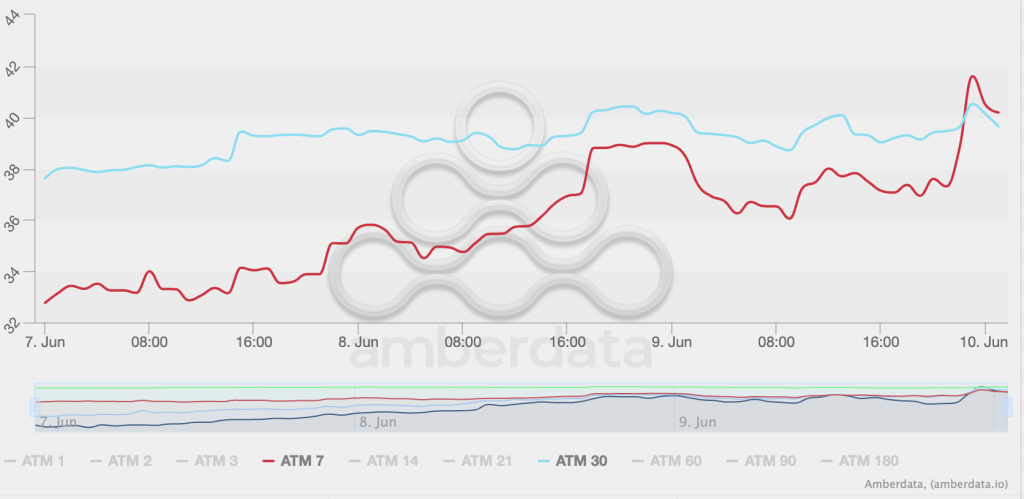In July, Coinbase filed a petition with the Securities and Exchange Commission, imploring the agency to engage in rulemaking for the sector. Eight months later, after not receiving a response, Coinbase filed a challenge in federal court to compel the SEC to respond to its petition.
The U.S.-based crypto company has been embroiled in conflict with the SEC, which on March 22 sent Coinbase a Wells Notice, or a document that informs a firm it’s facing imminent legal action. Chief legal officer Paul Grewal said at the time that Coinbase would challenge any lawsuits in court.
In an interview with Fortune, Grewal said Coinbase’s latest action is distinct from the Wells Notice but part of its mounting legal action to defend the company—and the sector’s survival in the U.S., where crypto has come under increasing pressure from regulators.
“We’re not going to court lightly,” Grewal said. “Because we’re absolutely convinced the SEC is violating the law, we feel like we have no choice but to take them to court.”
‘Our day in court’
A ubiquitous complaint within the U.S. crypto industry is that agencies such as Chair Gary Gensler’s SEC are engaging in “regulation by enforcement,” meaning that rather than codifying rules to govern the emergent sector, agencies instead are making their intents clear through costly lawsuits.
As lawmakers struggle to implement legislation that would establish guardrails for crypto, different governmental agencies have tussled for oversight jurisdiction. Gensler has claimed that nearly every cryptocurrency is a security, and therefore under the SEC’s purview.
Although leaders of companies such as Coinbase have called for explicit rulemaking by the SEC to make clear regulations pertaining to cryptocurrencies, as well as the processes by which firms can register to operate with different agencies, Gensler has publicly stated on numerous occasions that existing laws are sufficient.
“We have a clear regulatory framework built up over 90 years,” he told members of the House Financial Services Committee at a hearing last week.
As set out by the Administrative Procedure Act, a 1946 statute that governs the behavior of federal agencies, Coinbase filed its petition in July with the SEC to ask for rulemaking. The SEC was compelled to answer “within a reasonable time,” which could be months or years. According to Grewal, however, because Gensler has been making public statements, including before Congress, stating that no further rules are needed, the agency is carrying out what Grewal described as a “pocket veto” of Coinbase’s petition.
For that reason, Coinbase filed a petition today in the U.S. Court of Appeals for the Third Circuit for a writ of mandamus, or an order for the agency to fulfill its official duties. Grewal said that Coinbase is not necessarily seeking a positive response from the SEC on its July petition, but rather an approval or rejection so that Coinbase can have legal standing to challenge the decision in court.
In the often-lawless sector of crypto, Coinbase has established a reputation as a compliant and regulatorily focused company, especially after going public in April 2021. Even when it faced enforcement actions, Coinbase often worked with agencies on settlements, such as with a $100 million case with New York regulators in January over anti-money laundering law violations.
Coinbase’s lawsuit against the SEC reflects its increasingly fraught relationship with the powerful regulator. Although the company announced a plan to launch an offshore exchange based in Bermuda last week, Grewal emphasized that it is still a U.S. company with plans to continue operating domestically.
“We just want to have our day in court,” he said.
Credit: Source link











